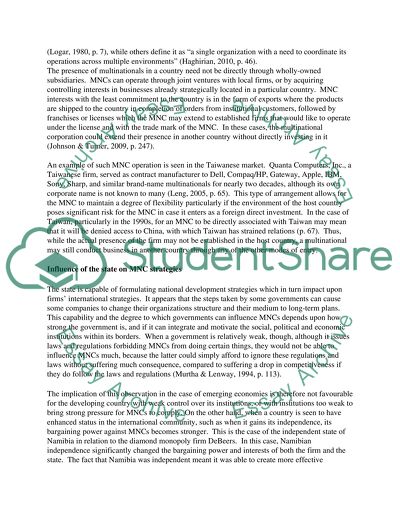Cite this document
(“Multinational Corporation and State Relations in Emerging Markets Essay”, n.d.)
Retrieved from https://studentshare.org/history/1393005-multinational-corporation-and-state-relations-in
Retrieved from https://studentshare.org/history/1393005-multinational-corporation-and-state-relations-in
(Multinational Corporation and State Relations in Emerging Markets Essay)
https://studentshare.org/history/1393005-multinational-corporation-and-state-relations-in.
https://studentshare.org/history/1393005-multinational-corporation-and-state-relations-in.
“Multinational Corporation and State Relations in Emerging Markets Essay”, n.d. https://studentshare.org/history/1393005-multinational-corporation-and-state-relations-in.


